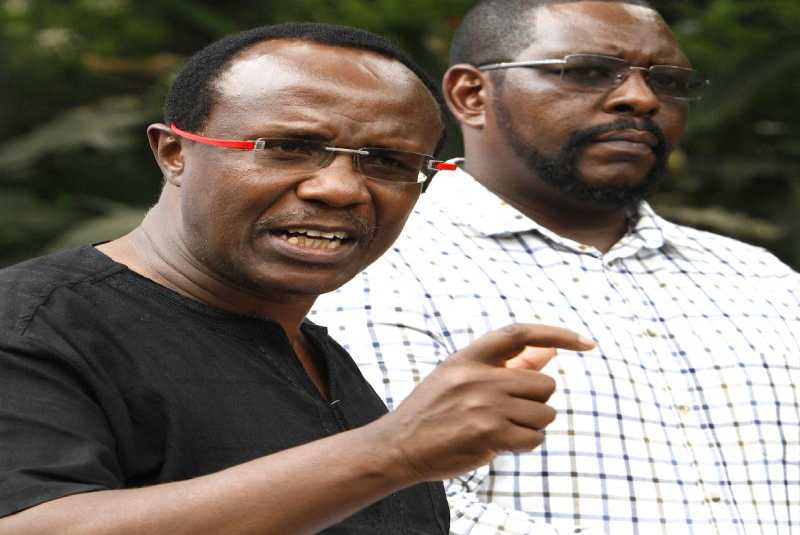×
The Standard e-Paper
Fearless, Trusted News

Nasa strategy committee members David Ndii and Koitamet Ole Kina addressing the press at Okoa Kenya secretariat. He says that Government has no projects to show for borrowed funds. [File, Standard]
Kenyans may have to wake up to the new reality that the country is in debt distress, and, sadly, deal with it through painful interventions including default.